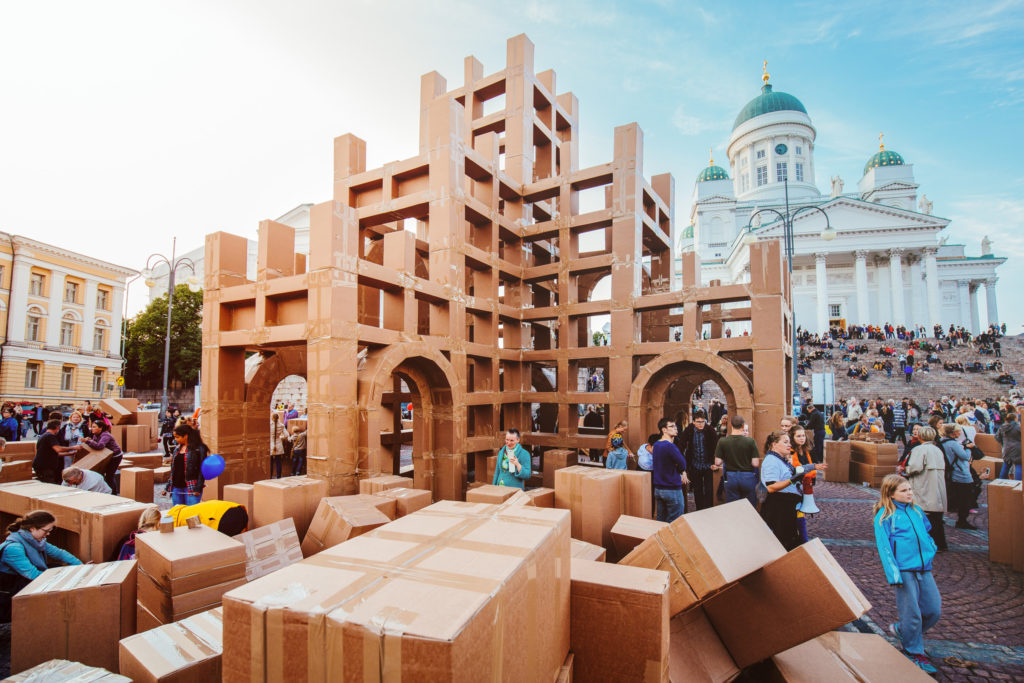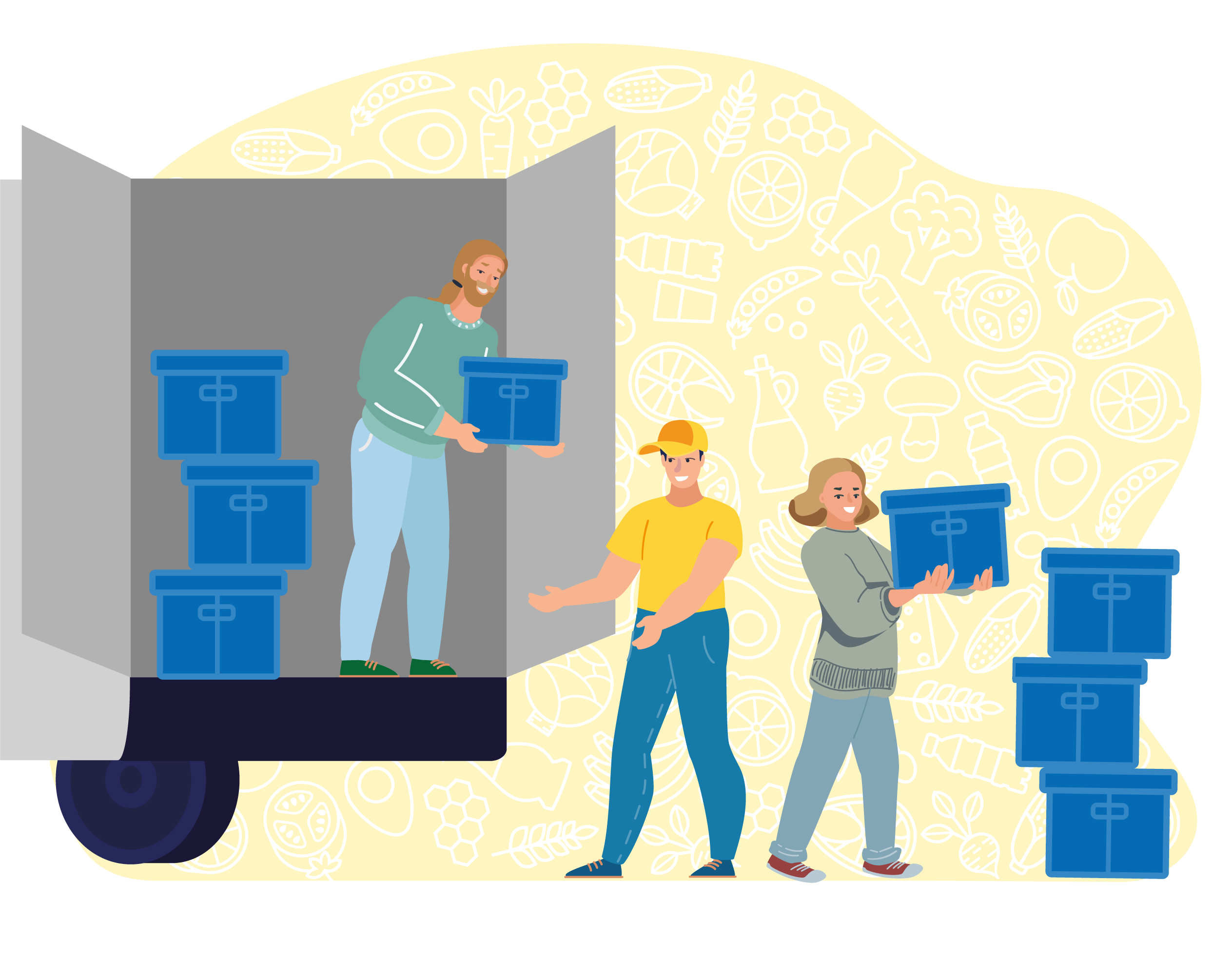


Responsible procurement reduces negative impacts on people and the environment and promotes positive impacts. The City can also support the creation of responsible markets by leading the way in the development and implementation of new solutions that are energy- and material-efficient and promote the circular economy and the preservation of biodiversity.
Responsible procurement lays the foundation for a responsible capital city. Helsinki’s annual procurement volume is approximately four billion euros, making the City the largest operator engaging in public procurement in Finland. Helsinki is committed to promoting environmental, social and economic responsibility in its procurement, and the City has a comprehensive network of responsible procurement.
In accordance with the City’s environmental policy, environmental impact assessment must be carried out in all procurements exceeding the national threshold value. The promotion of responsible procurement is implemented in particular through the Procurement Strategy, according to which the City’s procurements must be effective, responsible and climate-smart. Responsibility and impact are pursued in parallel with market interaction, innovation, procurement management and the promotion of procurement skills.
Video: Procurement Strategy (subtitles available in English)
In the video, Procurement Director Jorma Lamminmäki explains the sustainability priorities of Helsinki’s procurement strategy, which include climate change mitigation, the promotion of the circular economy, human rights and the prevention of labour exploitation, employment through procurement, and the prevention of the underground economy.
Although Helsinki is very committed to promoting responsible procurement at the upper level, there is still work to be done in the implementation of the objectives. The challenge has been to systematically link the responsibility criteria to the procurement processes, which would require better procurement management, training and awareness-raising. The City’s criteria bank supports this by including successful examples of responsibility criteria used in procurement.
Monitoring and impact assessment are also developed to provide better information on the implementation of the responsibility targets. The aim is to obtain better information on both the use of responsibility criteria in procurement and their effectiveness.
In 2020, the City prepared the Roadmap for Circular and Sharing Economy, the time span and goals of which extend to 2035. The roadmap is currently being updated. So far, circularity has been successfully promoted mainly in construction, particularly in infrastructure construction by using recycled materials and earth masses. The central role of land use planning in the circular economy has been recognised, and many types of development and cooperation are being carried out in this area. Circularity has been incorporated into land use plans as regulations, among other things. In addition to this, the City launched a three-year circular economy cluster programme in autumn 2021, the goal of which is to promote circular economy in the construction sector by developing solutions and new innovations for concrete planning and construction sites. Helsinki has also invested in reducing food waste. For example, Stadin safka, which is involved in food waste logistics and food aid development, utilises food waste from the food industry, wholesalers and grocery shops to strengthen people’s wellbeing and participation in the field of food aid. In 2022, Stadin safka saved about 925,000 kilograms of food from ending up as waste.
The recycling rate in the Helsinki region has not increased much in recent years, although it is 37% above the national level. A comprehensive transition to a circular economy requires additional resources and, above all, city-level leadership and commitment.
Investing in procurement that is low-carbon and reduces harmful substances
In particular, there is still work to be done in acknowledging global responsibility and human rights and in promoting the circular economy and nature-based solutions. Better progress has been made in addressing environmental and climate perspectives and employment through procurement.
Helsinki has begun to take climate impacts into account in its procurement through the six-year Canemure project. The utilisation of carbon footprint data and calculation has achieved better consideration of climate impacts in procurements. Helsinki is also participating in the international ChemClimCircle and NonHazCity 3 projects with goals such as reducing the prevalence of harmful substances in the urban environment through procurement.
Helsinki has also signed Green Deal agreements for emission-free construction sites and the reduction of harmful substances in procurement in early childhood education. The Green Deal is a voluntary agreement between the state and the public sector or business sector to reduce emissions and harmful substances.
Strengthening social responsibility in procurement
Through its procurements, Helsinki also aims to promote social responsibility, i.e. the enforcement of human rights and basic labour rights. The promotion of social responsibility in our procurements means that we take the impact of each procurement into account at a local, national and global level. Social responsibility issues are very challenging and complex, requiring long-term commitment and extensive cooperation between service providers, contractors, labour organisations and supervisory authorities. Helsinki has recognised that there is still a great deal of work to be done and a need to develop expertise in the area of social responsibility, and the Procurement Strategy has also set targets for this. It is important that City staff, both those responsible for procurement and those working on services, are aware of the risks associated with labour exploitation.
Helsinki requires its partners to engage in activities that respect the employee’s human rights and basic labour rights. A City-wide Code of Conduct for procurement is being introduced, in addition to which an internal guideline on the prevention of labour exploitation in the City’s service procurement has been drawn up. Special attention is paid to procurements where, on the basis of a risk analysis, it can be expected that there are risks related to social responsibility due to long supply chains, the large degree of human labour involved or the conditions of the country of production. Helsinki promotes the employment of those in a weaker position in the labour market by using employment clauses in its procurement.
Helsinki has been a Fairtrade City since 2013. The title Fairtrade City is awarded to a city that commits to promoting fair trade and making ethical choices in its procurements.
Video: Helsinki’s workwear procurement (subtitles available in English)
In the video, Development Manager Elina Tarkkonen explains that Palvelukeskus Helsinki’s workwear procurement highlighted the aspects of social responsibility alongside environmental responsibility. Particular importance was attached to ensuring that human and labour rights were respected throughout the long production chain. To boost local employment, the employment clause was utilised in the procurement process.
Successes:
- In addition to the development of low-carbon procurement, Helsinki is increasing its expertise in reducing harmful substances through procurement.
- The video series on responsible procurement illustrates how Helsinki’s responsibility goals are reflected in the City’s procurements.
- The City has received funding for several projects promoting circularity.
- The draft update of the City’s Building Regulations aims to promote the reuse of demolition materials.
- Responsibility is taken into account in the procurement process better than before.
Areas for development:
- Resources and skills are needed for the promotion and guidance of social responsibility, such as the practical implementation of the prevention of labour exploitation.
- The implementation of the systematic monitoring of responsibility criteria and the promotion of effectiveness monitoring require development.
- The circular economy has not been sufficiently promoted in land use planning and plot allocation.
- Further efforts are needed to improve the visibility of circular and sharing economy services and increase the understanding and participation of residents in sustainable choices.
- The promotion of circularity is still in the hands of individual services and people in the City organisation. City-level understanding of the systemic transformation is lacking.
Programmes:
The City of Helsinki’s Action Plan for the Circular and Sharing Economy
Procurement Strategy PDF


